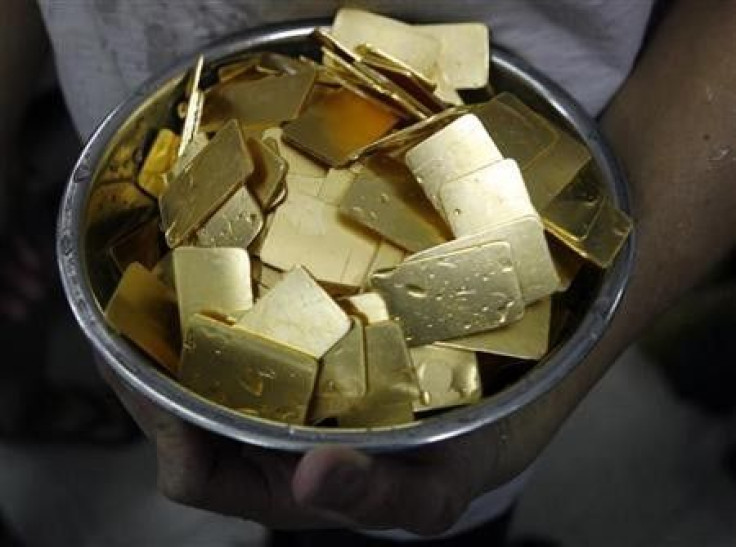Italy's Biggest Scrap Gold Buyer Sees Bright '12

(REUTERS) -- OroCash, Italy's biggest buyer of used gold jewelry, expects business to flourish this year with the opening of 150 new collection points in Italyand abroad as high gold prices and unfolding economic crisis prompt people to sell family assets.
Recycled gold accounts for more than a third of global gold supply and is a major driving force on precious metal markets. Gold scrap volumes in Europe jumped 12 percent to record highs in 2011 on the back of rising metal prices, according to data from metals consultancy Thomson Reuters GFMS.
People are no longer so emotionally attached to their old jewelry as in the past. Jewellery has become an accessory. People buy and sell it as easily as they buy and sell shoes, Marco Agostoni, OroCash commercial director, said on Wednesday.
OroCash, which opened its first collection point for used jewellery in 2000, estimates that volumes of its gold business rose by at least 15 percent in 2011 from 6 tons in 2010, its top managers told Reuters in an interview.
Of course, the crisis has helped (to boost business) but it is not the main reason. Gold prices are high and people sell jewellery they have accumulated over the years and no longer need, Agostoni said.
About 20-25 percent of people who sell their gold jewellery do it because they are forced by dire economic circumstances, up from about 15 percent before the crisis, OroCash managers said citing their internal statistics.
People get divorced and they want to free themselves from old memories. Or they inherit jewellery that they don't want to keep, Agostoni said, brushing off estimates by some sector analysts that most available gold scrap has already hit the market after a prolonged period of high prices.
OroCash which operates 350 collection points in Italy and about 100 shops in Spain, Portugal,Ireland and Austria, plans to open about 150 new shops this year on its home turf and abroad betting on people's desire to cash on high gold prices.
Countries favored by the group are often referred to as weak links in Europe. Italy, the euro zone's third-biggest economy, has been struggling to stave off a debt crisis which is engulfing Greeceand forced Portugal and Ireland to seek international bailouts.
Gold prices rallied on Wednesday adding to an 11 percent rise in January, the largest one-month gain since August 2011 and the largest for the month of January since 1980, thanks the weak U.S. dollar and central bank purchases.
Used gold jewellery collectors, known as Compro Oro shops, have mushroomed in Italy since 2000 when the country liberalized its gold market allowing private operators to trade in precious metals.
The number of Italian Compro Oro shops is estimated at 5,000-8,000 at present with an annual turnover of 2-3 billion euros, while total volume of gold scrap in the country is estimated at 85-90 tons in 2010, according to the Italian goldsmiths' federation Federorafi.
OroCash refines its precious metal scrap in Switzerland which has high quality refining facilities, its managers said.
© Copyright Thomson Reuters 2024. All rights reserved.












